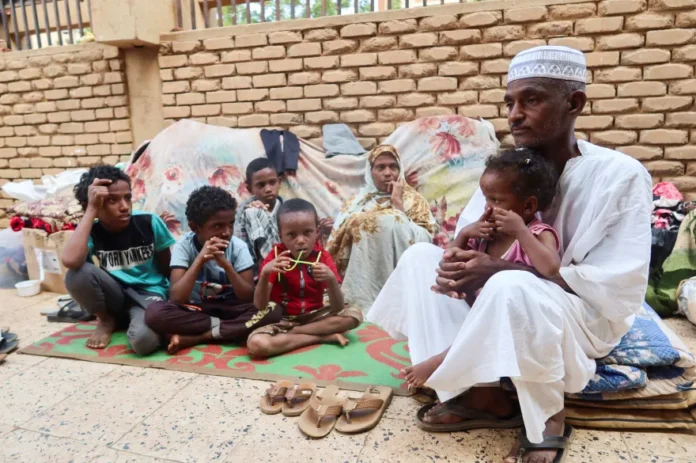Khartoum (Reuters) – Residents of Tuti Island, located at the confluence of the Blue Nile and White Nile, breathed a sigh of relief after being freed from paramilitary control and began recounting the hardships they endured.
The island, situated between the capital Khartoum and Omdurman, had been under the control of the Rapid Support Forces (RSF), which were forced to leave by the army. Residents shared stories of RSF abuses, including blocking access to medical care, imprisonment, and extortion.
Elderly islander Omar Al-Hassan recalled how an RSF member prevented him from crossing a bridge to seek medical treatment. “I suffered from severe urinary retention,” he said. “We reached the bridge, but the man turned us back, claiming our papers were incomplete. We had all the necessary documents; he just wanted money.”
The RSF, which has been in conflict with the army since April 2023 and still controls areas in western Sudan, did not respond to Reuters’ request for comment. The RSF has either denied committing human rights violations or stated it would hold perpetrators accountable while accusing the army of widespread abuses. The United Nations accuses both sides in the civil war of actions that may amount to war crimes.
Tuti Island, once a serene retreat with green landscapes overlooking the Nile, was considered one of Sudan’s most peaceful spots. Its roughly 10,000 residents enjoyed relaxing on its beaches under lemon trees or gathering in coffee shops to discuss Sudan’s complex political landscape. However, this tranquility was shattered by the conflict between the army and RSF.
“Tuti is Free”
In a microcosm of Sudan’s devastation, Tuti’s tight-knit agricultural community now faces famine and outbreaks of dengue fever. This week, Sudan’s army, led by General Abdel Fattah al-Burhan, declared control over Khartoum, including Tuti Island.
“We’ve cleaned all areas thoroughly,” said soldier Al-Tahir Al-Tayeb. “We urge people to return. Victory belongs to the armed forces. I say to them: Tuti is free! God is great!”
Nearby, a woman surveyed the destruction as people gathered at a mosque. RSF leader Mohamed Hamdan Dagalo, known as Hemedti, rose from humble beginnings to lead the feared Janjaweed militia that crushed a rebellion in Darfur, gaining power and wealth as a key enforcer for former autocrat Omar al-Bashir.
The RSF’s guerilla warfare expertise in Darfur contrasts with its lack of discipline compared to regular army forces. This was evident on Tuti Island, where resident Abdul Fattah Abdullah described being pursued by RSF members on four motorcycles while carrying vegetables from a market.
Abdullah spent 20 days locked in a small room with 32 army officers—a period he described as the hardest in his life. RSF fighters demanded $400 from him before releasing him. “They harassed people, demanding either gold or money,” he said. “May God punish them.”


